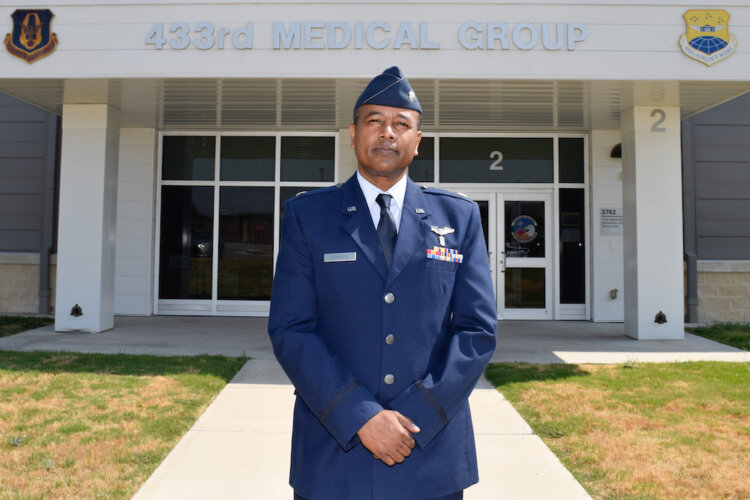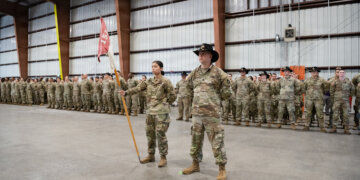Ivan Edwards lived under a dictatorship, viewed the military as oppressors and watched his parents nearly bleed out following a home invasion — all as a child in Kampala, Uganda.
“Before I came here, the military was not serving the people … It was oppressive,” said Edwards, now a lieutenant colonel in the Air Force Reserve. “When you see someone in [a] military [uniform], you run the other way .”
Edwards, who emigrated to the United States in the late 1980s, joined the Air Force Reserve in 2004, spurred by the 9/11 terrorist attacks and his desire to give back to the country he said had given him so much.
“That I think fueled my determination,” said Edwards, a flight surgeon with the 433rd Aerospace Medicine Squadron. “So it was a natural choice for me to do that.”
Edwards was born during Idi Amin’s dictatorship, which began in 1971 when Amin overthrew the government “by a military coup d’etat,” according to a Department of State memorandum.
An undated paper on Uganda, obtained through the U.S. Office of the Historian, stated that Amin’s assumption of power “triggered a purge of [overthrown President Milton Obote’s] tribal kinsmen in the army and eventually led to the ouster or death of nearly all non-commissioned officers in the security forces.” The paper also characterized Amin as “uneducated, irresponsible, paranoiac and racist” and estimated that between 4,000 and 5,000 of Obote’s supporters had been killed.
“I witnessed some events that forced resilience in me,” Edwards said. “One of them was [Uganda] went through a time of dictatorship. I think I blocked that out. I saw things that were atrocious … Death. Hunger. I saw torture, lost a few members of my family.”
In the 1970s, Edwards’ father was arrested “for something he never committed,” tortured and nearly killed, losing sight in one eye as a result.
Then on Feb. 15, 1983, Edwards’ family survived a home invasion.
“I saw them [my parents] almost bleed to death,” Edwards said. “We were in the home and there was nothing we could do because there was a curfew … So when I came to the United States, I said I was turning the page, turning the chapter.”
Five years after the home invasion, Edwards decided to emigrate to the United States.
“In those day people kind of fled… People left. And so I said, ‘This is not for me, I need something more,’” he said.
He left behind a “painful past,” but said he had his parents’ blessing. And fully believed in the American dream, which led to his military and civilian careers in the medical field.
“It’s nice to get away and do something different and yet also continue serving,” he said. “[It has] brought so much joy and meaning. We join the military because we want to join something bigger than ourselves … It was a natural fit, felt wonderful. I felt privileged to be part of something bigger than me.”
Read comments






































